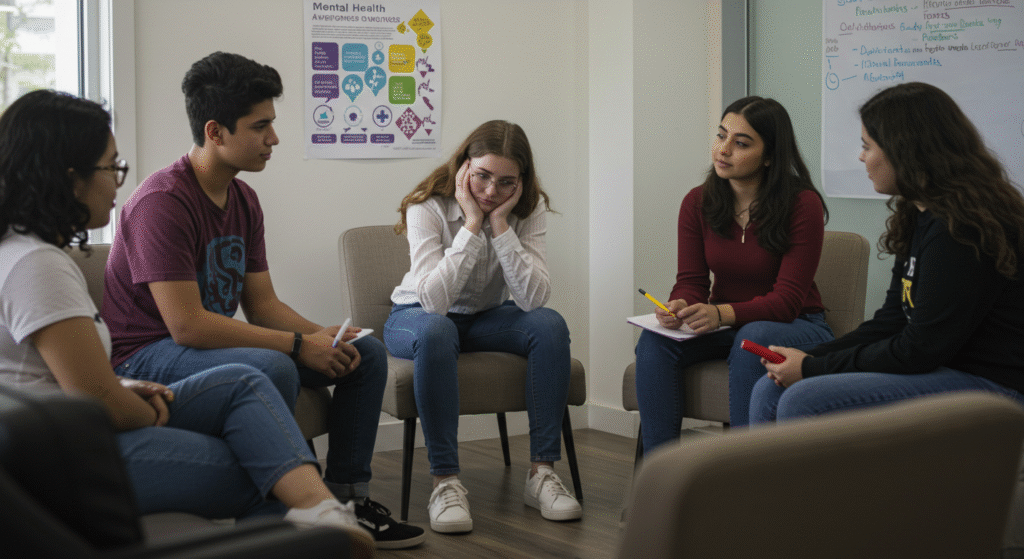
We’ve come a long way in understanding mental health—but depression and anxiety remain powerful challenges, especially for our youth. While society is making progress, there is still a cloud of silence around these issues that leaves many young people suffering in silence. It’s time to break that silence and make healing accessible, visible, and supported.
Let’s talk about how we can proactively fight depression and anxiety among our teens.
1. Education: Knowledge is Power
Understanding how depression works is the first step. Unfortunately, many still view it as simply “being sad” or “overreacting.” This kind of thinking can be hurtful and isolating for teens who already feel misunderstood.
Phrases like “You’re just being dramatic” or “Snap out of it” only pile guilt onto their emotional burden.
Let’s do better. When we take the time to learn what depression really is—a medical condition, not a mood swing—we equip ourselves to support teens with empathy and effectiveness.
2. Getting Involved: Be Present, Not Perfect
Helping someone with depression doesn’t require grand gestures. Sometimes, the best support is showing up consistently.
- A parent who listens without judgment.
- A friend who checks in.
- A teacher who notices when something’s off.
Even something as simple as offering to go for a walk, help with homework, or just sit in silence can bring comfort to a struggling teen. Connection matters.
Peers, mentors, and community leaders can all play a role—but don’t hesitate to escalate to professional help if signs of serious mental health issues appear.
3. Healthy Living: Build the Foundation
A healthy body supports a healthy mind. While depression can sometimes sap motivation for self-care, gently encouraging small, consistent habits can make a big difference over time:
- Balanced meals
- Enough sleep
- Regular movement or exercise
- Screen-time limits
- Time in nature
These routines don’t cure depression, but they equip the body and brain to better handle it. Over time, they build resilience that can prevent small struggles from becoming deeper crises.
4. Therapy: It’s Not a Weakness—It’s Wisdom
Therapists are trained to recognize signs of mental health struggles long before a full-blown crisis develops. They can teach your teen how to manage negative thoughts, cope with emotional triggers, and develop healthy communication habits.
Whether it’s individual therapy, group counseling, or family sessions, getting help is strength—not shame.
And remember, therapy isn’t just for “when things are bad.” It’s an excellent tool for growth, healing, and prevention at any stage.
5. Medication: A Support Tool, Not a Life Sentence
In some cases, a therapist or psychiatrist may recommend antidepressants. These are not a “magic fix,” but when used appropriately, they can help stabilize mood enough for therapy and lifestyle changes to take effect.
If medication becomes part of the treatment plan:
- Follow medical advice closely.
- Combine with therapy, not replace it.
- Know that it may be temporary.
- Monitor progress and stay in touch with the provider.
The goal is not dependency—it’s empowerment and healing.
It Takes a Village
Fighting depression and anxiety isn’t just the job of doctors and parents—it’s everyone’s responsibility. Teachers, faith leaders, siblings, coaches, neighbors—we all have a role to play in lifting up the next generation.
Let’s be the kind of community that:
- Listens without judgment
- Offers support without shame
- Prioritizes mental health alongside physical health
With compassion, knowledge, and action, we can give our youth the tools they need not only to survive—but to thrive.
💬 What small changes can you make today to help a teen feel seen, heard, and supported?

